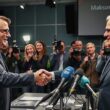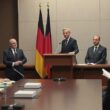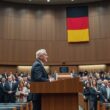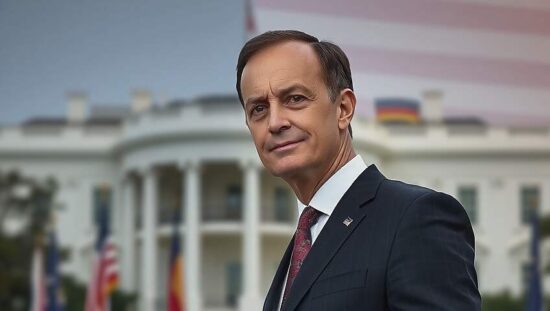A Test of Diplomacy Amidst Tensions
Germany’s Chancellor, Friedrich Merz, is set to make his inaugural visit to Washington, accompanied by a sense of self-assurance, according to Kanzleramtschef Thorsten Frei. This confidence stems from the multiple phone calls between Merz and former US President Donald Trump in the past four weeks, with the first in-person meeting to be met with special courtesy from the American side.
However, the agenda for the meeting is not without its challenges, particularly when it comes to the Ukraine issue. The US has recently announced restrictions on foreign nationals seeking to study at Harvard University and the US State Department will also review the visa status of those already enrolled, as per sources.
Furthermore, the US has banned citizens from 12 countries from entering the country, citing the need to protect against “foreign terrorists.” The ban, effective from June 9, applies to nationals from Afghanistan, Myanmar, Chad, the Republic of the Congo, Equatorial Guinea, Eritrea, Haiti, Iran, Libya, Somalia, Sudan and Yemen.
Frei believes Merz, an experienced figure in the business world, will find the right tone for the meeting, covering trade and customs policies as well as shared security concerns. “Friedrich Merz has every reason to make a confident appearance in Washington and he will do so” the Kanzleramtschef said.
When asked if Merz would address the issue of US administration officials supporting the far-right Alternative for Germany (AfD) during the German federal election, Frei replied, “No government of another friendly state should intervene in our domestic political affairs. Conversely, this applies as well – and the German government will hold to this principle. I am convinced that Friedrich Merz will find the right words during his visit.”
The Kanzleramtschef also emphasized the need for a strengthened NATO, with European nations taking on a greater responsibility. Since the Russian invasion of Ukraine, the security landscape has fundamentally changed and it is crucial that the alliance is bolstered. “We will all have to invest more in security and defense” Frei stated, adding, “Ultimately, it’s about being so strong that we’re not even attacked in the first place. And that’s primarily a task for the Europeans in the alliance.





